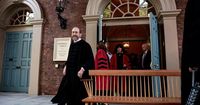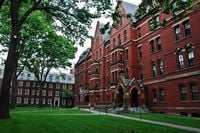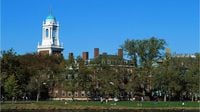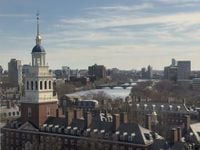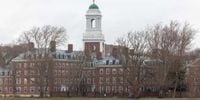Harvard University has publicly rejected a series of demands from the Trump administration that threatened to withhold nearly $9 billion in federal funding unless the university agreed to overhaul its governance, admissions, student discipline, and diversity policies. In a strongly worded letter to the university community on April 14, Harvard President Alan Garber condemned the demands as an attempt at "direct governmental regulation of the 'intellectual conditions' at Harvard," asserting that the university will not compromise its constitutional rights or academic independence.
Garber disclosed that the administration sent an "updated and expanded list of demands" on Friday night, April 11, along with a warning that failure to comply would jeopardize Harvard's financial relationship with the federal government. "We have informed the administration through our legal counsel that we will not accept their proposed agreement," Garber wrote. "The University will not negotiate over its independence or its constitutional rights." Although some of the conditions were framed as measures to combat antisemitism, Garber argued that "the majority represent direct governmental regulation of the 'intellectual conditions' at Harvard."
The university's legal team contended the administration's demands violate the First Amendment, infringe on university autonomy, and bypass legally required procedures established by Congress. The government's proposed conditions included: restructuring Harvard's governance and admissions to prevent enrollment of international students allegedly "hostile to the American values and institutions inscribed in the US Constitution and Declaration of Independence"; ending diversity, equity, and inclusion (DEI) policies and programs; implementing "meaningful" disciplinary actions in response to protests on campus over the past two academic years; and expelling students allegedly involved in an assault on an Israeli Harvard Business School student.
The move has drawn legal pushback. A group of Harvard professors has filed a lawsuit against the administration over the threat to withhold funding. Harvard is now the first major US university to publicly refuse such demands, setting a precedent for others facing similar pressure. Federal grants have already been frozen for seven other universities, including Columbia University and the University of Pennsylvania.
On the campaign trail, Donald Trump has repeatedly vowed to penalize higher education institutions over what he calls "culture war" issues, particularly their diversity initiatives. The Trump administration's actions have raised alarms about academic freedom and the role of federal funding in shaping the policies of universities.
In a statement on April 14, Garber emphasized that no government—regardless of which party is in power—should dictate what private universities can teach, whom they can admit and hire, and which areas of study and inquiry they can pursue. "The University will not surrender its independence or relinquish its constitutional rights," he reiterated.
In response to the administration's demands, Garber highlighted the importance of safeguarding academic freedom. He stated, "Freedom of thought and inquiry, along with the government’s longstanding commitment to respect and protect it, has enabled universities to contribute in vital ways to a free society and to healthier, more prosperous lives for people everywhere."
The Trump administration's threats to freeze funding have implications not only for Harvard but also for the broader landscape of higher education. The administration has already frozen federal funding for several other institutions, and the potential loss of funding could have devastating effects on research and innovation across the country.
George Q. Daley, dean of Harvard Medical School, pointed out that the partnership between universities and the federal government has historically led to significant advancements in medicine and technology. He noted, "As we look back over the 70 years of that partnership, it has returned brilliantly on the investments the government has made."
In a recent interview, Daniel P. Gross, an associate professor at Duke University, warned that the withdrawal of research funding from universities would be "catastrophic" to American innovation. "Universities are such an integral part of the modern U.S. innovation system that it wouldn’t stand without them," he said.
Harvard's decision to reject the administration's demands has sparked a wave of support from academics and the public alike. Prominent figures, including former Harvard President Lawrence H. Summers, have praised Garber's leadership in standing up against what they view as overreach by the federal government.
As Harvard navigates this challenging landscape, it remains committed to addressing antisemitism on campus and fostering a culture of open inquiry. Garber stated, "The work of addressing our shortcomings, fulfilling our commitments, and embodying our values is ours to define and undertake as a community."
The situation at Harvard serves as a critical moment in the ongoing debate over the role of government funding in higher education and the autonomy of academic institutions. As universities across the nation grapple with similar pressures, Harvard's stance may inspire others to assert their independence and resist government overreach.
In the coming weeks, the outcome of Harvard's defiance against the Trump administration's demands will be closely watched by educators, policymakers, and advocates for academic freedom. The stakes are high, and the implications of this standoff will likely resonate throughout the higher education landscape for years to come.
